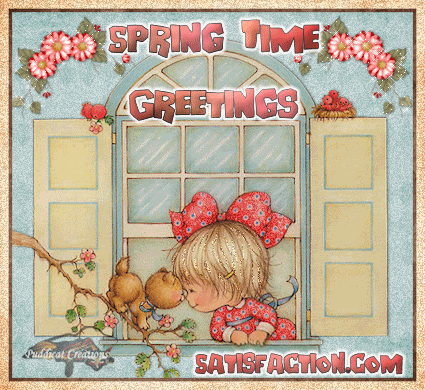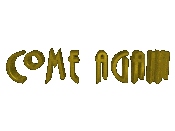Q. What is special to you personally about Once Blind (in comparison with the many other books you have written)? What connection do you have to this subject?
A. My first introduction to John Newton's story was in church, told by the worship leader as we prepared to sing "Amazing Grace." The story so moved me that I made it the subject of my second book-a chapter book for children entitled John Newton: The Angry Sailor. That book stayed in print for over twenty years, went through numerous printings, and was translated into many languages. I was invited to tell John's story at many venues, from school groups to a Christmas event that drew 1, 200 women. I was even invited to South Korea to share his powerful story and, when I finished, the entire congregation stood up and spontaneously broke out singing "Amazing Grace" in Korean! Over the years, I have come to thin of John Newton as a personal friend, and to take his admonishments to heart. Now, more and more of my writing is taking me to places where I see firsthand the harsh realities of modern-day slavery with all its awful faces.
Q. Why did you decide to write, Once Blind in narrative form?
A. I believe that the story is more immediate, compelling, and powerful told this way. Surely this is why John Newton used it to effectively illustrate his message of God's amazing grace to the listeners of his day. And the crowds who came to hear his exciting story ended up turning to Christ. It was John's story that helped turn the heart of his nation against the slave trade.
Q. What kind of research did you conduct in order to write the book?
A. Most of the research was based on John Newton's own writings-his biography, his collections of letters, his treatises on the slave trade. I also used the writings of others, such as Josiah Bull, who had access to people who knew him and to his unpublished writings.
Q. How much of your story is true?
A. Basically, the book is true, although I did employ some literary license. Although John Newton recorded his motives and actions, and certainly his opinions, he was light on specifics, names, and details. So when I was unable to find these from others sources, or when the sources were contradictory, I supplied details and situations that realistically fit the time and place, yet which enabled readers to get the full impact of what was happening. For instance, Mick Bass was not factual, but his was a fairly common situation aboard such ships at the time, and what happened there allows us to see the actions John Newton describes as his own. A great deal of John Newton's dialogue is taken from his own writings.
Q. Tell us about John Newton. What is it about his life that has left such a lasting legacy for readers today?
A. Several things. First of all , his redemption gives us hope. If God's amazing grace was sufficient for such a self-described "wretch," than none of us need feel hopeless. Second, it gives us a great picture of what God can do with a life that is turned over to him. Third, it is a challenge for 21st-century Christians who have in some ways become overly self-absorbed and removed from the humanitarian issues of the day. It was Christians who brought about reforms in so many areas in the past. Certainly today, with the tremendous resources entrusted to us comes responsibility. John Newton's example challenges us to reach beyond ourselves with whatever we have.
Q. How was John Newton converted from a blasphemous troublemaker and slave ship captain to an outspoken abolitionist and the author of the dearly loved song "Amazing Grace"?
A. God would not give up on him. He would not let John Newton go. It took near-death in a cataclysmic storm, but God proved that his grace was greater than all John Newton's sin.
Q. What exactly was John Newton's role in ending the African slave trade?
A. For one thing, he was a mentor to William Wilberforce and the one who actually counseled him to stay in politics. Also, John Newton's writings depicting the realities of the slave trade so horrified the British people that they were forced to face the truth. Later, when he denounced the slave trade from the pulpit, he greatly influenced the crowds who flocked to hear him. Then William Wilberforce persuaded him to testify before Parliament in order to counter the argument that the complaints about what happened on the ships were greatly overblown. Wilberforce wanted firsthand testimony from one who had been there. That's when the threats poured in. But John would not be intimidated. His testimony was shocking and persuasive.
Q. Most people, including Christians, are amazingly unaware that slavery continues today. You wrote this book to awaken readers to the real horrors of 21st-century slavery. Can you tell us about that?
A. Anti-Slavery International estimates that a full twenty-seven million people are currently enslaved around the world. These are people who are treated as property, forced to work for little or no pay, and sometimes bought and sold. The most widespread form of slavery is bonded labor, with ten million entrapped in India alone. But it also includes sex and labor trafficking, child slaves, and forced marriages. In Sudan, women and children are kidnapped an sold as traditional slaves.
Q. You have traveled to many countries and have personally witnessed the atrocities of sex trafficking and child labor. Will you tell us about some of your experiences?
A. In May I will be going to Nepal to gather specific trafficking stories and to visit a home for girls who have been freed from traffickers. Last year I met a teenager in India who had been sold into prostitution by her father. She managed to escape and made her way back home only to have her enraged father attacher her with a machete. She begged me to bring her home with me. She said, "I'll work for you forever and you will never have to pay me." Slavery is all she knew.
But I also met a group of bonded laborers in India who have been released through the efforts of Indian Christians, and then helped to self-sufficiency through micro-loans and businesses. The women had been so successful that they started their own bank so that they could lend money to others who managed to escape bonded labor. One told me, "never again will there be a generation in our village working for the landowners. We will be the last women here who cannot read or write."
Q. Why do we not know about these things?
A. That's a good question! Perhaps, as in John Newton's day, because it is much easier to live in ignorance. But many of us are determined to see that we and those around us do know. And as that is being accomplished, as William Wilberforce said, "You may choose to look the other way, but you can never again say, 'I did not know.'"
Q. What can we do as Christians to help fight the war on global slavery?
A. The first thing we can do is educate ourselves on situations that engender and allow slavery, than pass that knowledge on to others. We can also support one of the wonderful organizations working on behalf of the enslaved. We can make our voices heard to our elected officials because they need to understand that this is vitally important to us. And last but by no means least, each one of us can pray, knowledgeably and faithfully.
Read My Review and First Chapter here.
















































No comments:
Post a Comment